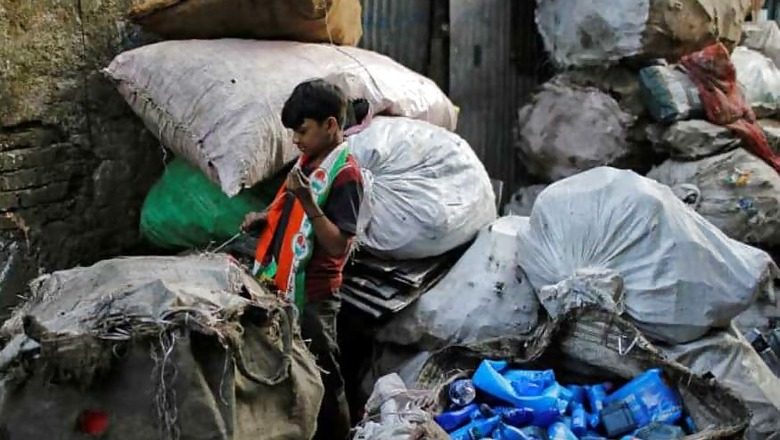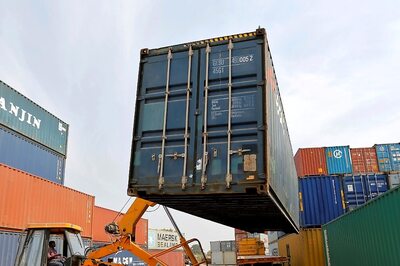
views
Five minors working as bonded labourers in a paper plate manufacturing unit in Telangana’s Vikarabad district were rescued by the police along with the district’s child protection officers.
The factory was fully operational despite controversial shoot-at-sight warnings by chief minister K Chandrashekar Rao during the nationwide lockdown to stop the spread of the coronavirus pandemic, which has claimed 53 lives and infected more than 2,000 people across India.
"Our volunteers were in the area spreading awareness about Covid-19 when they came to know that there were some industrial units still operating despite strict orders of a national lockdown. They informed the district collector about it who then issued further orders," said K Krishnan, executive director of Foundation for Sustainable Development, an NGO based out of Telangana.
Functioning under the name Sangameswara Enterprises in Shivareddypet area of the district, the unit was then raided by the police and district administration.
"The gates were closed when the police reached," said an NGO volunteer. However, the unit was operational and employed five children, aged between 11 and 15, to make paper plates.
The children are migrants from Bihar. They were trafficked a year ago with the promise of regular remuneration and food.
A case has been filed under the Bonded Labour Act, the Juvenile Justice Act and the CLPRA.
Earlier in the year, 24 migrant bonded labourers from Odisha, including six child labourers and nine women, were rescued in the state's district headquarter of Karimnagar.
The Trafficking of Persons (Prevention, Protection and Rehabilitation) Bill, 2018, provides for investigation of all types of trafficking, and rescue, protection and rehabilitation of trafficked victims.
The bill classifies certain purposes of trafficking as ‘aggravated’ forms of trafficking. These include trafficking for forced labour, bearing children, begging, or for inducing early sexual maturity. Aggravated trafficking attracts a higher punishment.
The bill sets out penalties for several offences connected with trafficking. In most cases, the penalties set out are higher than the punishment provided under prevailing laws.
According to a report by the Human Rights Watch, India has the largest number of working children in the world.
Forced and bonded labour was abolished through the Bonded Labour Slavery (Abolishing) Act in 1976. Yet, according to the Union Ministry of Labour and Employment, the last four years have seen an estimated 13,512 bonded labourers released and rehabilitated.
According to the United Nations Special Rapporteur on modern slavery, forced and bonded labour systems in Asian countries such as India are rooted in older social discriminatory patterns.
That is, those who end up in the vicious cycle of bonded labour are mostly from socially marginalised groups such as Scheduled Castes and Scheduled Tribes.




















Comments
0 comment